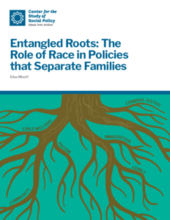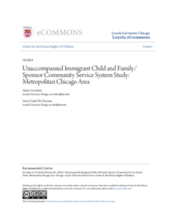This page contains documents and other resources related to children's care in the Americas. Browse resources by region, country, or category.
Displaying 761 - 770 of 1438
This project attempts to put numbers on the foster care capacity in each state in the US.
This study involved a comprehensive literature review, an environmental scan, and interviews with 20 former youth in care in Canada, focusing on what helps and hinders youth in care to graduate from high school.
This study reviews relevant empirical literature on the impact of forced family separations in the US on child and youth wellbeing from 2000 to the present.
The purpose of this systematic review is to summarize the effects of interagency and cross-system collaboration aimed to improve child welfare-involved children and family outcomes related to safety, permanency, and well-being.
This exploratory focus group study examines foster parent perspectives on what facilitates and impedes their engagement in child welfare court processes.
The current study examined how discrimination relates to adjustment outcomes in a sample of internationally, transracially adopted Korean Americans from the Minnesota Sibling Interaction and Behavior Study.
This qualitative study examines the academic pathways of 33 college students with a history or foster care placement, homelessness, or both, to better understand the ways in which forms of social capital influence the transition to college and early college experiences in the US.
The purpose of this study was to assess vaccine coverage for a cohort of children who have been in the care of the child welfare system compared to children in the general population in Alberta, Canada.
By examining the roots of policies that separate families and their entanglement with racial prejudice and discrimination, this report makes the case that we must embrace an alternative path.
This report presents findings from a research project to (1) address the knowledge gap on children who are unaccompanied immigrants1 (“CUI”), with its focus on the Chicago metropolitan area, and (2) provide relevant information to stakeholders who can strengthen the systems that support these young people.



